With the Wuhan Open leading the charge, Chinese tennis is preparing itself for global take-off
Chinese tennis is making huge strides forward on the global stage, with the sport raising the profile of whole cities as the country looks to capitalise on its fledgling success
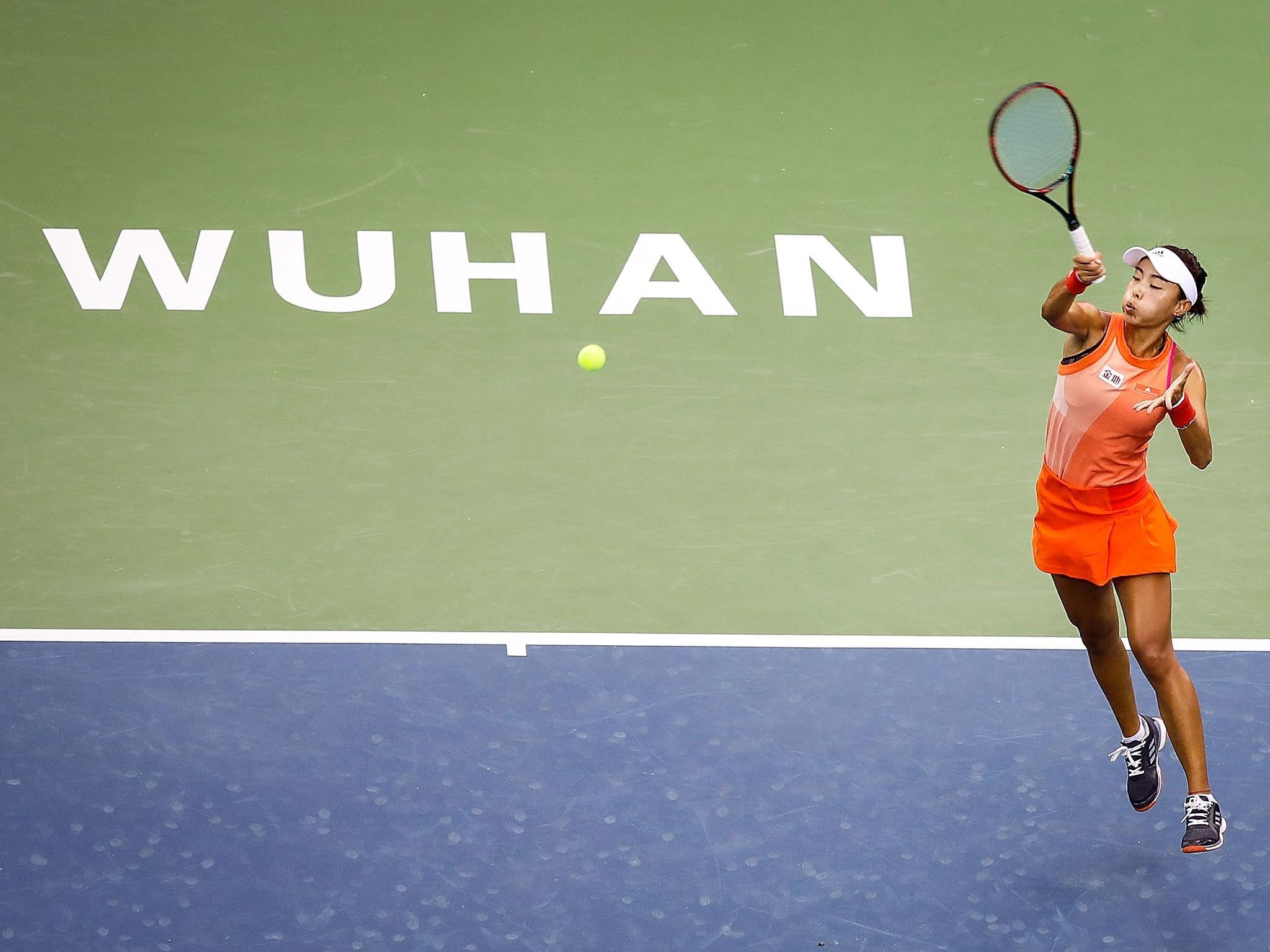
When Fabrice Chouquet, the Frenchman charged with running this week’s Dongfeng Motor Wuhan Open, arrived here less than four years ago, the site of what is now one of the most important tournaments on the Women’s Tennis Association tour was an empty field on the city outskirts.
Today, sitting in an office beneath the soaring 15,000-capacity Centre Court at the Optics Valley International Tennis Centre, Chouquet still feels a sense of wonder at the project which he heads.
“This was quite a remote area, but in a few years’ time it’s going to be the middle of the city,” he said. “What I’ve seen here in the last four years in terms of development and construction is something I’ve never experienced before.”
Chouquet, a former tour supervisor and international umpire who has more than 20 years’ experience working in professional tennis around the world, added: “There is nothing to compare with this in Europe or in many other regions of the world.”
In China, nevertheless, Wuhan is far from exceptional. The WTA, which opened its Asia Pacific office in Beijing nine years ago, is staging seven tournaments in China this year – only the United States is hosting as many – while there are four Chinese events on the men’s tour.
Gleaming purpose-built tennis centres have sprung up in Guangzhou, Shenzhen and Zhuhai in the south, Nanchang, Wuhan and Chengdu in the centre and Beijing, Shanghai and Tianjin to the east.
No expense has been spared. More than $200m (about £150m) has been spent on the development here. The main stadium, which opened last year, is modelled on Rod Laver Arena in Melbourne.
While Chinese tennis is not yet as successful on the court as it is off it, the country is developing strength in depth in the women’s game. China has 11 women ranked in the world’s top 200 in singles and 15 in the top 200 in doubles, though it has yet to find a successor to Wuhan’s most celebrated sporting figure, Li Na, who won the Australian and French Opens before retiring three years ago.
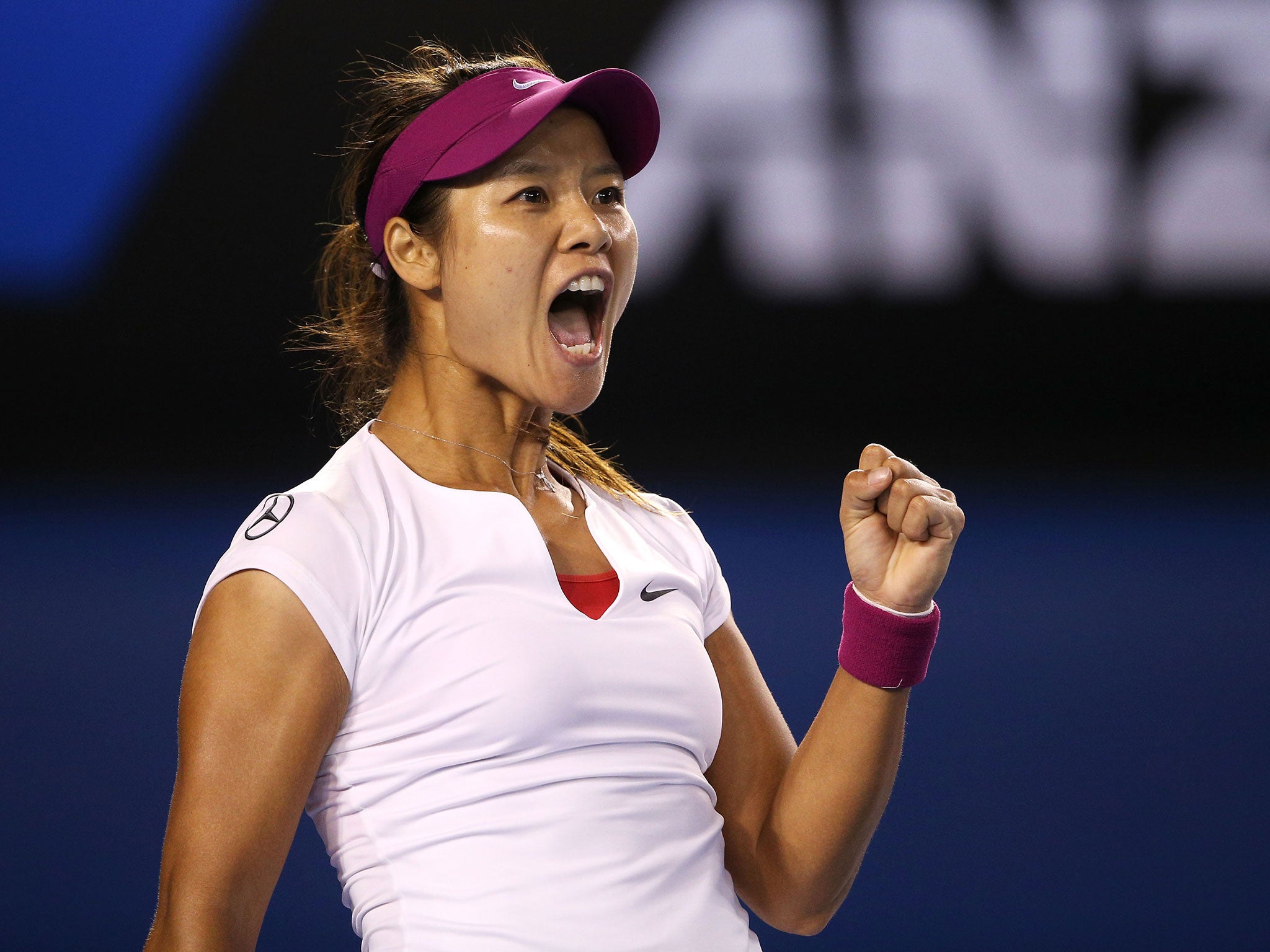
In the men’s game there are no Chinese singles players in the top 200 and only two in doubles, but at the US Open earlier this month Yibing Wu became the first Chinese boy to win a Grand Slam junior singles title.
Since returning to Olympic competition in 1984 China has made huge investment in sport. The tennis centre here adjoins an Olympic complex run by the Hubei provincial government where some 700 athletes across a range of sports are based.
The Chinese also see the staging of international sports events as a way of putting their cities on the map. Wuhan may not be a familiar name to the rest of the world but the capital of Hubei province, which has long been a major trading centre, is a rapidly expanding city of 10 million people and an important home for high-tech and automotive industries.
Wuhan has also played a significant part in Chinese history. The Qing dynasty was eventually toppled after the Wuchang Uprising here in 1911 and in 1966 Mao Zedong swam across the Yangtze River in a highly symbolic moment during the Cultural Revolution.
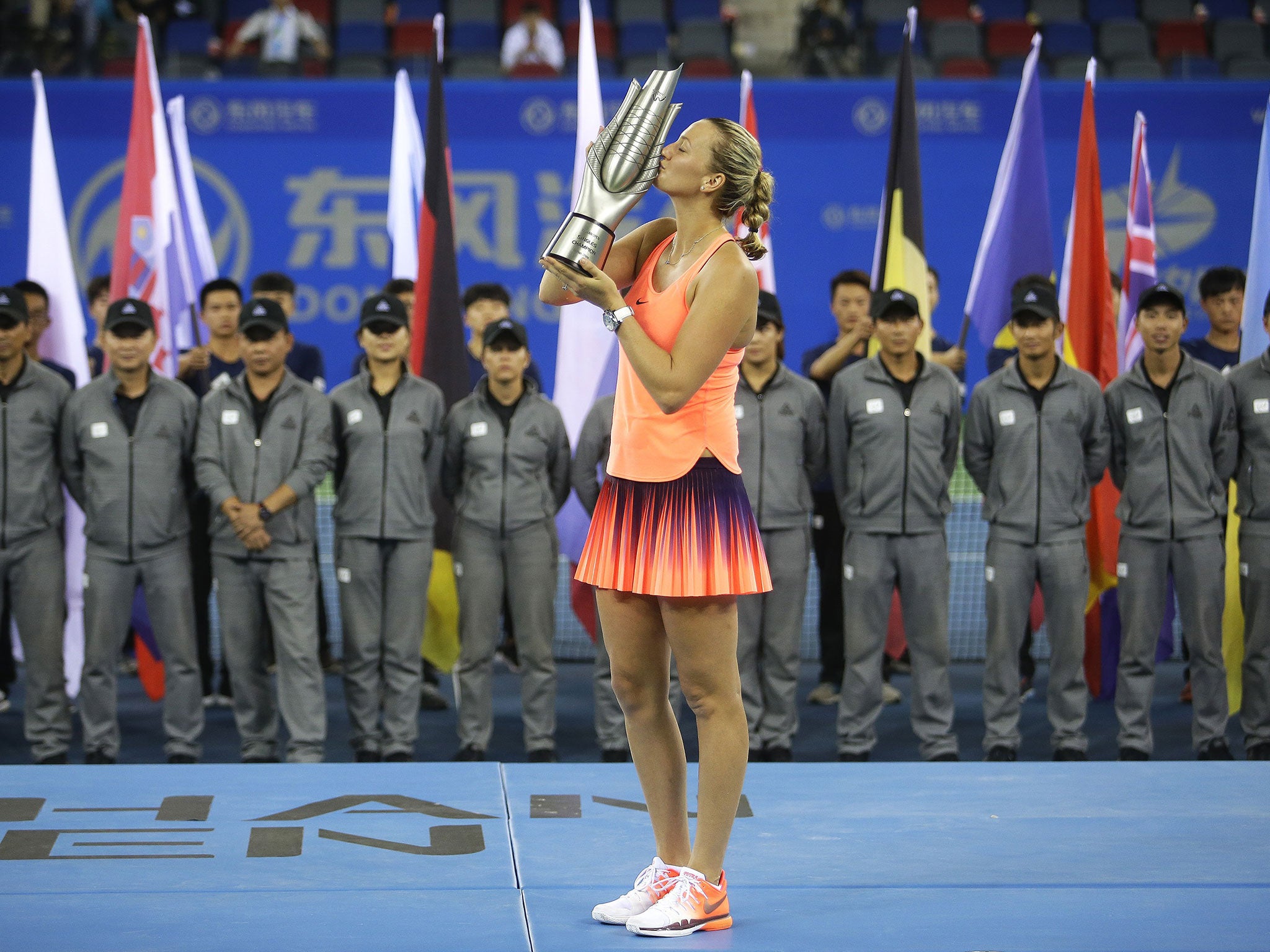
The Wuhan Open is the first major international sporting competition staged by the city, but other events are following. More than 22,000 runners took part in the second Wuhan Marathon earlier this year and the city is also venturing into international basketball and badminton.
“We want to tell the world about the power of Wuhan as a city,” Liu Yingzi, the deputy mayor of Wuhan, told The Independent. “More than 200 of the world’s top 500 companies already have offices here, so this is very important for the city.
“Wuhan loves sport, especially as we’re the home of the queen of tennis, Li Na. We want people to love tennis and to help people understand the character of the city.”
Li, who was treated like royalty on a visit to the tournament here on Thursday, said: “I think more people know where Wuhan is now. When I was playing nobody knew.”
Facilities were certainly much more spartan when Li learned the game as a child playing across the city in Zhongshan Park. “There are many more tennis courts now compared with when I started,” the former world No 2 said. “We didn’t have any hard courts. We used to play on sand.”
The state-owned Wuhan Sports Development Investment Company built the new tennis centre here, which has also been used for concerts and will stage other sporting events in the future.
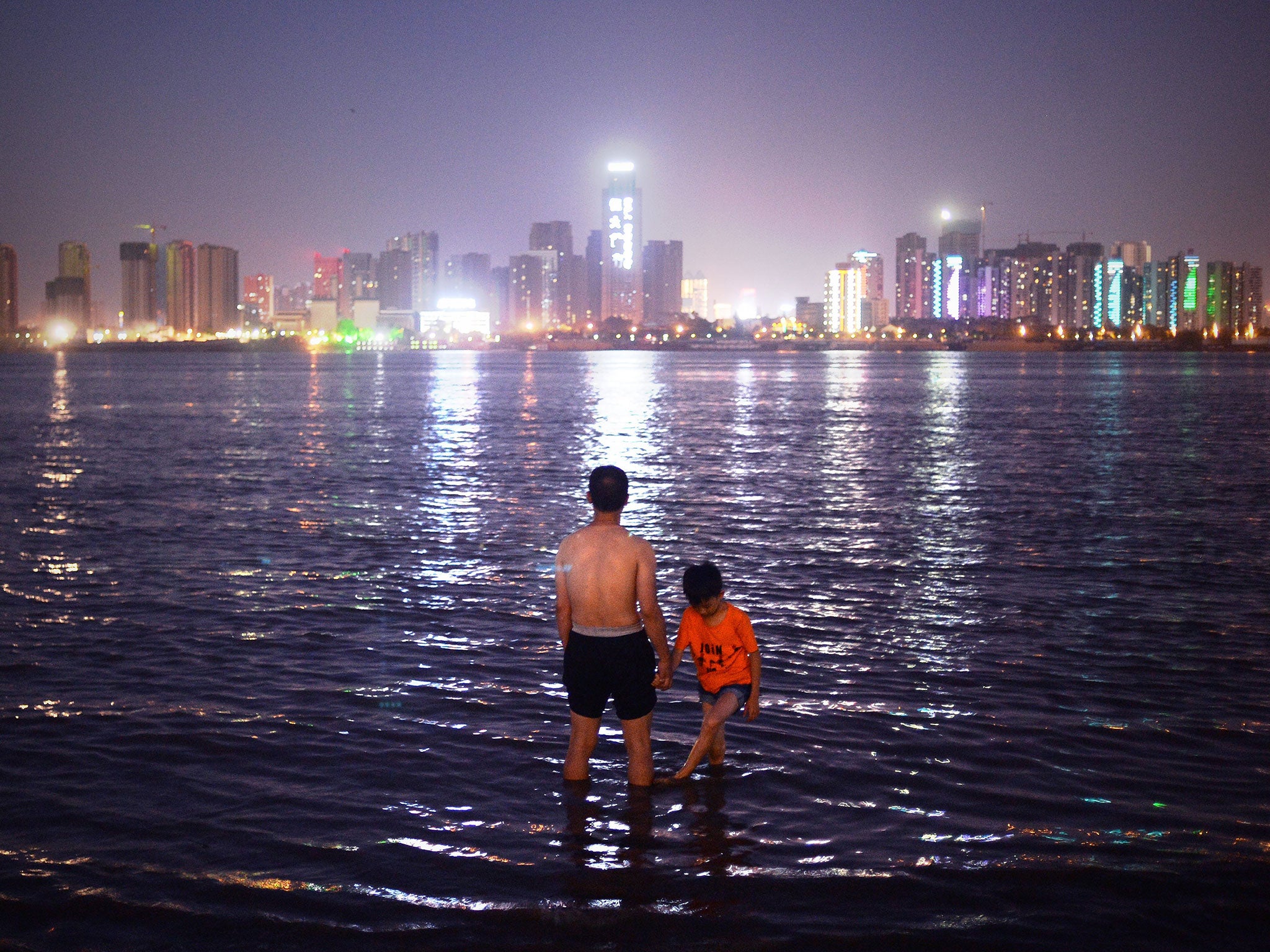
“This is a long-term investment which fits in with Wuhan’s vision of becoming a more influential city in China, a more recognised city internationally, a city that is growing at a very fast pace,” Chouquet said.
Chinese media interest in this week’s tournament has been huge, thanks largely to the performances of some of the local players. Shuai Peng beat Petra Kvitova, the defending champion, and Qiang Wang reached the third round, with Sloane Stephens, the US Open champion, among her victims.
Midweek attendances, nevertheless, have been sparse. Johanna Konta’s defeat to Ashleigh Barty in the 5,000-capacity second stadium earlier this week was watched by fewer than 50 spectators. However, attendances overall have been rising since the inaugural tournament four years ago and there was a full house on Sunday for the opening ceremony, at which the presence of Li, who is an ambassador for the tournament, was a major attraction.
“It’s obviously a challenge to fill such big arenas,” Chouquet said. “That’s a challenge that’s not faced only by Wuhan. We’re in a city where there is less tennis culture and no huge fan base to start from. We’re building that with Li Na, who is a fantastic ambassador.”
Local success would help generate greater public interest and for the moment that seems much more likely among the women than the men. The Australian Peter McNamara, who used to work for the Chinese Tennis Association and now coaches Wang, believes there are cultural reasons why the women are more successful.
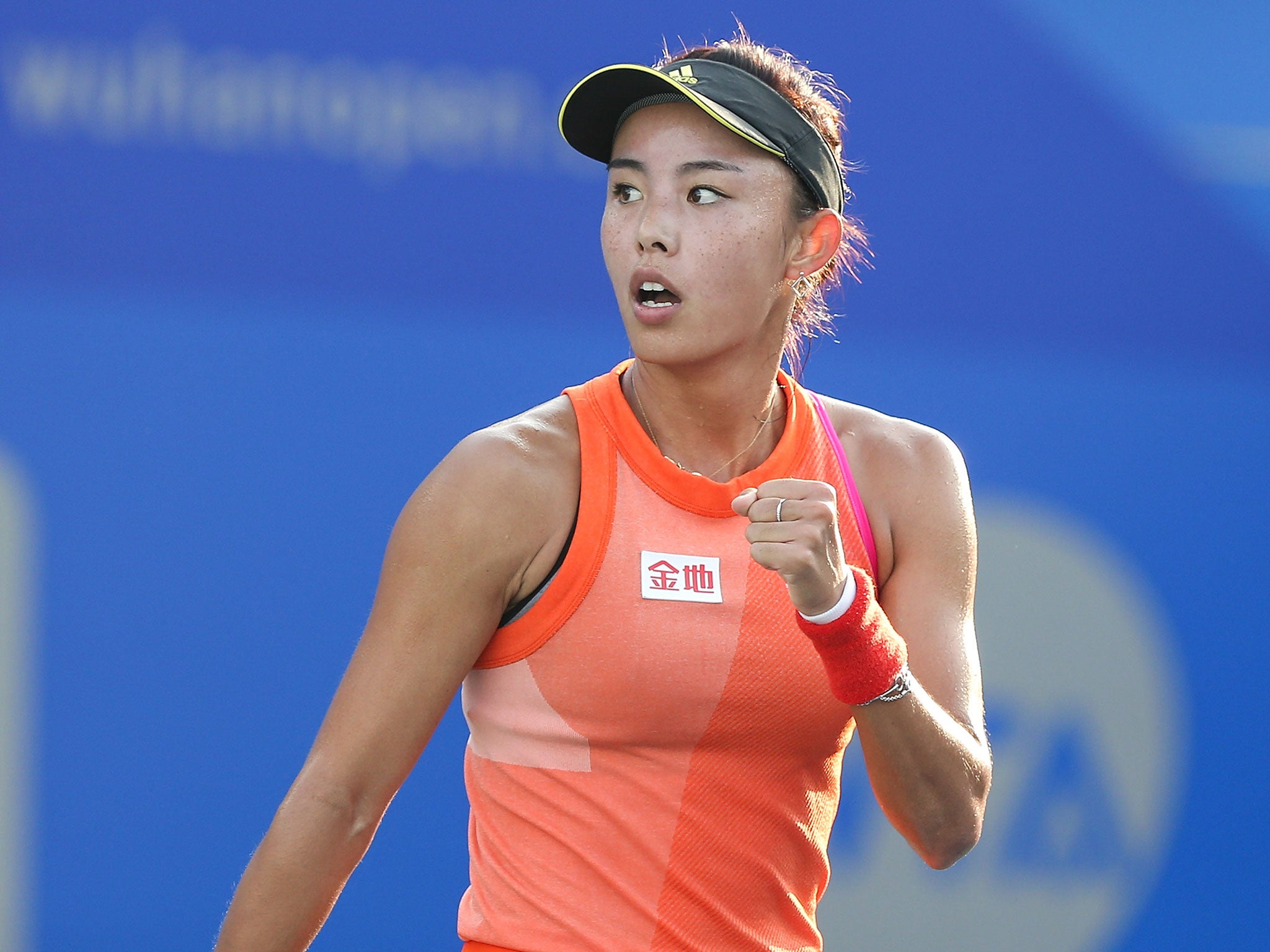
The former Wimbledon doubles champion, who has also coached Mark Philippoussis and Grigor Dimitrov, said: “The boys get it fairly easy, the girls don’t. The girls fight very hard. You can see their mentality on the court - their character, their intensity, their determination to prove themselves as tennis players. They will go to untold lengths to improve themselves.
“We saw it with Li Na, we’re seeing it with Zhang, we’re seeing it with Peng, even the younger girls. Unfortunately the boys don’t have a role model, which they need. Hopefully Wu, the young boy who won the US Open singles, will be more of a role model to break the top 100 and create a difference in men’s tennis in China.
“I think tennis is going to be a huge sport in China in 10 years’ time. You look at the tournaments, the facilities, the teaching methods - everything is improving day by day.”
The influence of imported coaches like McNamara is also helping. “I don’t teach technique,” he said. “I teach strategy – where to hit the ball. The Chinese are very, very good at teaching technique, but they’re not very good about teaching where to hit the ball. Today it’s not about how you hit the ball, it’s where you hit it.”
For the moment Li remains the most recognisable face in Chinese tennis – she features on many of the biggest tournament posters across the city – but she is hoping that will change.
“I really don’t like the fact that people always remember me,” she said. “I feel that if people are remembering me that’s because Chinese tennis is not growing up.”
Join our commenting forum
Join thought-provoking conversations, follow other Independent readers and see their replies
Comments